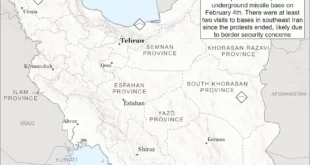Iranian caretaker Oil Minister Gholam Hossein Nozari here Wednesday expressed hope the peace pipeline contract would be signed by the three parties – Iran, Pakistan, and India.
He made the statement on the sidelines of a gathering on use of the retired oil industrialists’ experiences.
“Recent negotiations aimed to settle some clauses of the contract,” said the caretaker, adding, “We set a date for the signing of the contract.”
He expressed hope that Pakistan and India would settle the transit fee problem and India would return to the negotiating table and the contract would be inked by the three sides.
Tehran and Islamabad signed the finalized text of a clause on revision of gas price every three years in the Pakistani capital Tuesday.
Chief negotiator Ghanimifard and Pakistan’s deputy minister for petroleum and natural resources agreed on the price formula the two sides had finalized in their meeting in Tehran.
Ghanimifard, also the international affairs head of the National Iranian Oil Company (NIOC), told PIN the price would be reviewed every three years when conditions of oil and gas markets were normal.
He, however, added, “If Japan’s natural gas and crude oil markets or the furnace oil and gas oil markets in the Persian Gulf witness special and unprecedented price fluctuations, the price revision will be made after two years for the first time and every year thereafter.
“So, all types of fluctuations – natural and exceptional – of the crude, natural gas, and oil products markets have been included in the price revision clause.”
According to him, the two sides’ experts finalized 75 percent of the peace pipeline contract’s text during the last round of bilateral talks and the remaining 25 percent will be finalized in the near future.
“Ministers of energy and senior officials of the two countries will study the contract before its text is legalized,” underlined the special representative.
Ghanimifard had already said the contract for building Iran-Pakistan-India (IPI) gas pipeline would be concluded according to a price formula and no set price would be introduced and only at the time of gas transfer to the pipeline, the price would be determined.
He added the formula used for setting price of Iran’s gas would be based on the price of natural gas in Japan because that country currently accounted for 50 percent of natural gas consumption of the world.
The official said the Japanese energy market had not been as fluctuating as markets of Britain and the United States and price had been relatively stable there.
With Pakistan bypassing India in talking to Iran for a transnational natural gas pipeline, India may mellow down its stand on the price revision clause being insisted by Iran. It is also likely to accept a Pakistani invitation for bilateral talks at secretary level.
Senior officials told DNA Money that no formal invitation from Pakistan has so far been received, but added that India might agree for talks with Pakistan either in Islamabad or on the sidelines of a steering committee meeting for the Turkmenistan-Afghanistan-Pakistan-India (TAPI) pipeline. The two-day meeting, likely to be attended by Indian petroleum minister Murli Deora, is scheduled for November 28 and 29.
Stating that the issue of transit fee payable to Pakistan would be tackled at political level, an official said transportation cost would be based on the actual cost calculated on commercial basis.
Deora had earlier asked for waiving off transit fee that is payable to Pakistan for allowing its territory to be used for gas meant for India.
India was banking on a joint stand with Pakistan on not agreeing to a price revision clause being insisted upon by Iran for the Iran-Pakistan-India (IPI) pipeline. Pakistan’s going ahead with negotiations with Iran has forced India to have a rethink.
The proposed price formula for Iran pipeline, being linked to the Japanese Crude Cocktail, a benchmark for even the Qatari natural gas being shipped into India in liquefied form, will inherently reflect a price change reflective of global price movements. However, officials said India might be willingly to consider Iran’s stand that natural gas prices globally were currently undervalued in comparison to crude oil.
 Eurasia Press & News
Eurasia Press & News



